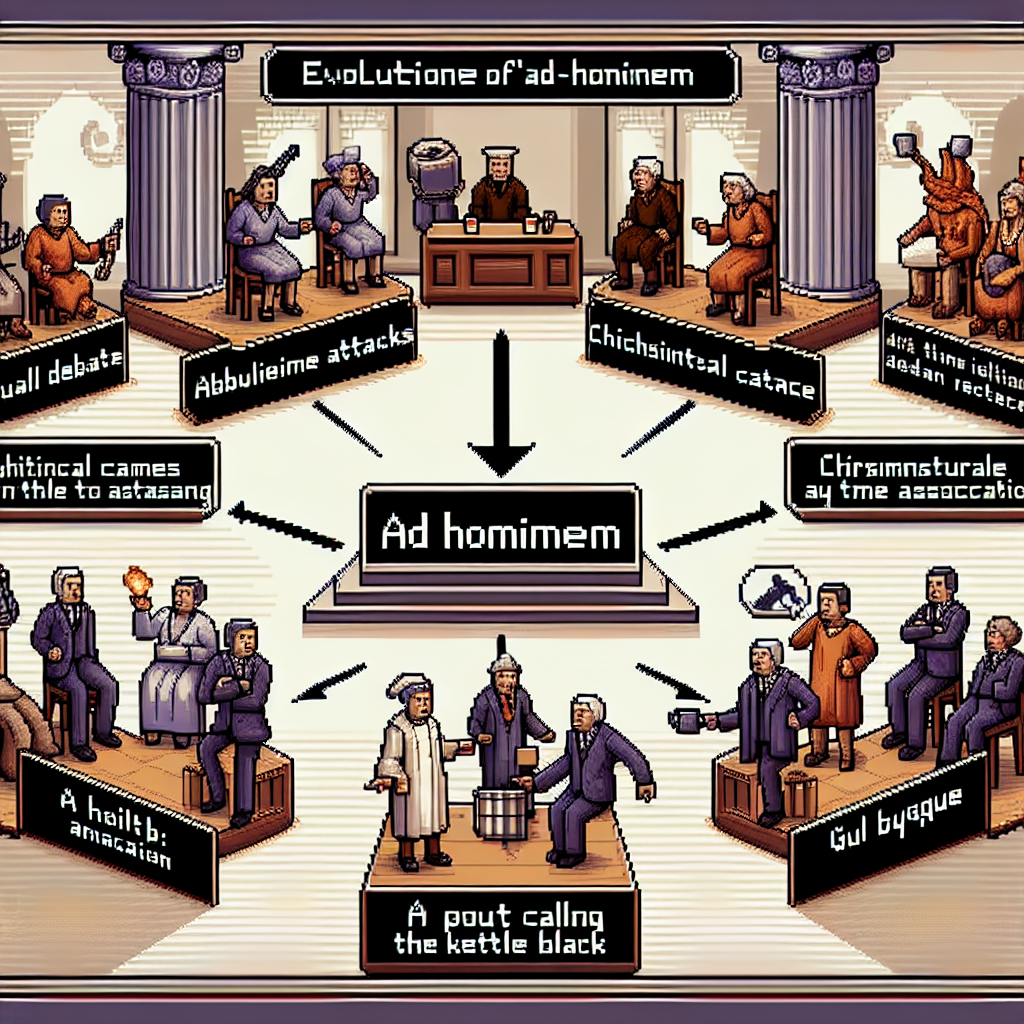Introduction to Post Hoc Ergo Propter Hoc
Understanding the Term “Post Hoc Ergo Propter Hoc
The term Post Hoc Ergo Propter Hoc is a Latin phrase meaning “after this, therefore because of this.” It is a logical fallacy that assumes a causal connection simply because one event follows another.
Importance of Logical Fallacies Today
Understanding logical fallacies such as Post Hoc Ergo Propter Hoc is crucial in today’s world, where information is abundant and often misleading. Recognizing these fallacies can help individuals navigate complex information landscapes.
Preview of Main Points
This article explores the historical context of Post Hoc Ergo Propter Hoc, its characteristics, and how it manifests in modern news. Additionally, it discusses the impact on society and provides strategies for recognizing and avoiding this fallacy. By understanding its implications, readers can enhance their critical thinking skills and make more informed decisions.
Historical Context of Post Hoc Ergo Propter Hoc
Origins in Classical Philosophy
The term Post Hoc Ergo Propter Hoc has its roots in classical philosophy, deriving from Latin which translates to “after this, therefore because of this.” This logical fallacy was identified by ancient philosophers as they examined causality and the importance of logical reasoning. Despite its age-old origins, the term remains relevant today, reminding us of the pitfalls in correlation and causation.
Early Instances in History
Throughout history, many examples highlight the use of this fallacy. During medieval times, various superstitions arose from Post Hoc thinking. For instance, if a village wise woman was seen near a sick cow before it died, people might conclude her presence caused the illness. Additionally, false connections were often made between celestial events and earthly happenings, illustrating how early societies struggled with separating temporal sequence from causation. Understanding these historical contexts sheds light on how such reasoning persisted over time and illustrates the necessity of critical examination in today’s world.
Understanding the Fallacy of Post Hoc Ergo Propter Hoc
Definition and Breakdown of the Concept
The term Post Hoc Ergo Propter Hoc is a Latin phrase that translates to “after this, therefore because of this.” It represents a common logical fallacy where one assumes that if one event occurs before another, the first event must be the cause of the second. Despite seeming straightforward, this reasoning is flawed because correlation does not imply causation. By understanding this concept, individuals can avoid making incorrect assumptions that could lead to faulty conclusions.
Common Characteristics of Post Hoc Reasoning
Post Hoc Ergo Propter Hoc reasoning typically involves a temporal sequence of events, leading one to mistakenly connect them causally. Often, this fallacy arises during moments of uncertainty when people seek explanations for occurrences. Additionally, the allure lies in its simplicity, making it a frequent trap in debates and discussions.
How This Fallacy Can Lead to Incorrect Conclusions
While it might appear harmless, falling into the trap of Post Hoc Ergo Propter Hoc can significantly skew decision-making processes. By failing to recognize other potential factors or influences, individuals may draw conclusions that lack the necessary evidence. This, in turn, can affect not only personal decisions but also broader social, political, and economic outcomes.
Post Hoc Ergo Propter Hoc in Modern News
Examples in Current Events
The Post Hoc Ergo Propter Hoc fallacy frequently manifests in today’s news, where rapid conclusions are drawn in high-speed reporting environments. Because news stories often develop in real-time, quick associations between events are inevitable. During an election cycle, for example, a candidate’s sudden surge in popularity might be attributed directly to a recent debate performance when other factors like campaign spending or media coverage could play significant roles.
Public Perception and Decision-Making
Moreover, public perception is easily swayed by such simplified reasoning, leading to incorrect conclusions that influence voting behavior or public opinion. Additionaly, this can skew decision-making processes, especially when people feel the need to react quickly without thorough analysis.
Media Responsibility
Ultimately, the media bears responsibility for providing balanced analysis by avoiding the Post Hoc Ergo Propter Hoc fallacy. By presenting more nuanced coverage, journalists can empower audiences to think critically about causation, rather than accepting surface-level explanations at face value. Despite the pressures of fast-paced news cycles, careful reporting remains crucial.
Impact of Post Hoc Ergo Propter Hoc on Society
Real-world Consequences of Widespread Post Hoc Reasoning
The prevalence of Post Hoc Ergo Propter Hoc in everyday reasoning can have significant real-world consequences. This logical fallacy often leads to misconceptions that affect decisions across various sectors. For example, in the political realm, flawed assumptions can lead voters to support policies that are not truly beneficial, solely because they mistakenly link prior events to outcomes.
Influence on Political and Economic Decisions
Post Hoc Ergo Propter Hoc reasoning also impacts economic decision-making. Business leaders might misinterpret market trends, assuming that certain events directly caused financial results, when multiple factors could be involved. Hence, this flawed logic can lead to misguided strategies and resource allocation.
Potential Effects on Scientific and Technological Advancement
Despite robust research methods, even science and technology fields are not immune. Incorrectly correlating events due to post hoc reasoning can stall innovation. Therefore, combatting this fallacy is crucial during critical investigations to ensure objective and factual conclusions. Successful efforts in this area could foster advancements that improve quality of life.
Recognizing and Avoiding Post Hoc Ergo Propter Hoc
Identifying Fallacies in News Coverage
Understanding Post Hoc Ergo Propter Hoc is crucial for navigating the complex landscape of modern news. During the analysis of news stories, it is essential to scrutinize claims and examine the evidence presented. Additionally, being aware of the temporal sequence of events helps prevent erroneous connections.
Strategies for Critical Thinking
Enhancing critical thinking involves questioning assumptions before accepting conclusions. Despite the allure of simple explanations, actively seeking multiple perspectives fosters a more comprehensive understanding. Equally important is verifying information through reliable sources to distinguish between correlation and causation.
The Role of Education
Education plays a pivotal role in mitigating the influence of Post Hoc Ergo Propter Hoc. Emphasizing logical reasoning skills in curricula encourages students to think analytically. Developing these skills not only improves individual decision-making but also positively impacts societal progress. Because informed citizens contribute to a more rational public discourse, cultivating such skills is imperative.
Post Hoc Ergo Propter Hoc: A Case Study in News Reporting
The Case: Misinformation in Health Reporting
During the early months of a public health crisis, a news outlet reported that a new health policy implemented coincided with a sharp decline in infection rates. This led the public to believe in a direct correlation between the policy’s introduction and the decrease in cases. However, upon closer analysis, it was revealed that other factors, such as increased public awareness and improved sanitation practices, also significantly contributed to the decline. This situation exemplifies the Post Hoc Ergo Propter Hoc fallacy, where a temporal sequence was misinterpreted as a causal relationship.
The Solution: Critical Reporting and Analysis
To avoid such errors, media organizations must employ critical analysis techniques to ensure comprehensive coverage. This involves verifying multiple sources and considering additional conditions that may lead to similar outcomes. By doing so, they can provide their audience with more accurate information, thereby preventing undue influence on public opinion and decision-making. Furthermore, improving journalists’ understanding of logical fallacies like Post Hoc Ergo Propter Hoc is essential in promoting responsible reporting. Be sure to read read the strawman .


